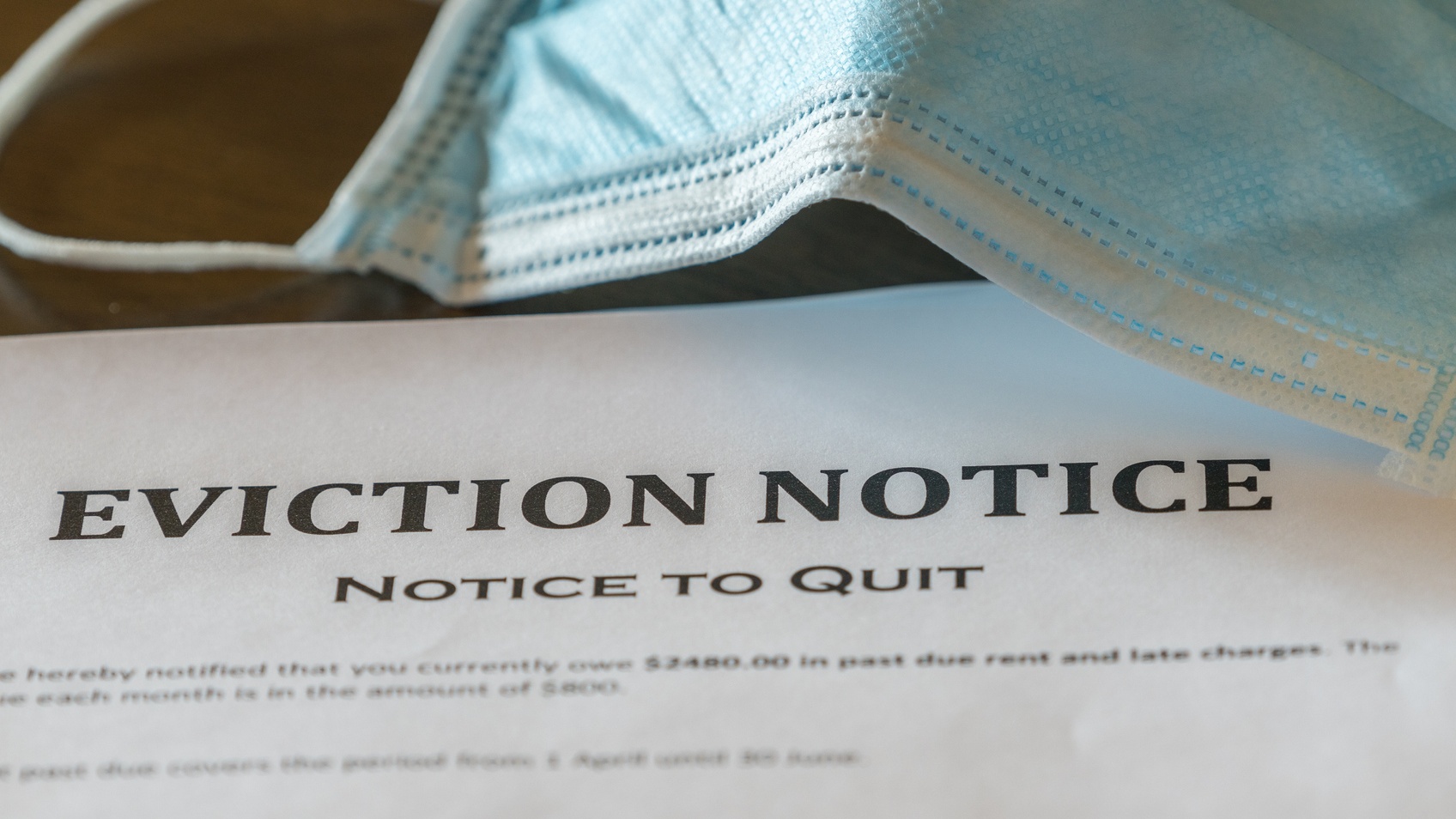Since the start of the coronavirus pandemic, the United States has faced an eviction crisis, leaving many people without a home and resources.
The CDC released a document on Friday clarifying an executive order by President Donald Trump, noting that landlords are not required to halt all evictions and may resume proceedings in court. According to the CDC, landlords are only barred from removing people for issues related to COVID-19.
The memo reiterates that is it non-binding and some state courts have interpreted the case differently. The memo on Friday states the executive order was neither intended to terminate or suspend the operations of any state or local court nor to prevent landlords from starting eviction proceedings, provided that the actual eviction was for non-payment of rent.
“The CDC moratorium has some holes in it. Landlords can still move for an eviction if they come up with a reason other than loss of income due to the pandemic, and it’s on the resident to prove the landlord wrong,” Peggy Bailey, vice president for housing policy at the Center on Budget and Policy Priorities, told The Washington Post.
The document effectively gives landlords the green light to begin the eviction process and has led to building owners tacitly pushing people out.
In an effort to stop the crisis from unfolding further, Trump released an executive order that forced the CDC to temporarily halt evictions through the end of 2020 in an effort to slow the spread of COVID-19.
"Under the CDC order, American renters who meet certain conditions cannot be evicted if they have affirmatively exhausted their best efforts to pay rent, seek government rental assistance, and are likely to become homeless due to eviction," the order read.
"Those who benefit from this assistance are still obligated to pay accrued rent or housing payments in accordance with their lease or contract. Landlords are still permitted to pursue eviction against tenants committing criminal acts, threatening the health or safety of other residents, and damaging property, among other offenses," it added.
As Blavity previously
reported, the patchwork of measures put in place to protect renters by the federal government and state legislatures began to lapse in August, forcing people to look for housing amid a pandemic.
According to the Princeton University Eviction Lab, over 2,000 landlords across 17 cities began eviction proceedings between Sept. 27 and Oct. 3. Nearly 60,000 eviction cases have been started in those 17 cities since the pandemic began earlier this year.
The Washington Post quoted statistics from the National Council of State Housing Agencies last month which estimated that 14 million renting households may owe up to $34 billion by the end of the year.
According to the U.S. Census Bureau, nearly 30% of all U.S. adults said they may face some form of eviction or foreclosure in the next two months.
For tenants to qualify for protection against eviction, the person has to show that their income this year will be less than a certain amount and they must prove that COVID-19 caused them to lose employment or the ability to make money.
The memo also noted that the Department of Housing and Urban Development has extended its eviction and foreclosure moratorium for Federal Housing Administration (FHA)-insured homeowners through the end of the year.
While these efforts have been welcomed by advocates and renters, they have faced an avalanche of lawsuits by landlords and building owners, who are now spending millions on efforts to lobby the U.S. government against enforcing them.
Landlords have defended themselves by saying they too have been hit hard by the COVID-19 economic crunch and are only trying to protect their financial interests by evicting people.
“We file a lot of evictions, but we’re not ever trying to make people lose their housing. We’re just trying to help the landlord pay their rent,” said Dimitri Hatzifotinos, a lawyer for real estate firm KBW Investment Properties, told The Washington Post.
The latest CDC memo even includes a section saying landlords are not required to make their tenants aware of the fact that Trump's executive order even exists.
Advocates who spoke to The Washington Post said the patchwork nature of the laws and orders that sought to protect renters have made it easy for landlords and real estate companies to essentially force people out of their homes.
Democratic lawmakers in Congress have sought to address the crisis by pushing for another stimulus package that would provide funding to landlords and renters as a way to cover costs for both. But the White House has balked at the amount of money proposed and the likelihood of a deal being passed before the election.
"Across the country, states and counties have taken somewhat inconsistent approaches to applying the CDC moratorium. When that happens, there's a greater potential to thwart the purpose of the order itself, which is to prevent the spread of COVID-19,” Wake Forest University law professor Emily Benfer said in an interview with The Hill.
"It's unconscionable for the government to turn its back on the millions upon millions of people who are struggling, and unreasonable to ask them the people hardest hit to bear the brunt of the pandemic knowing that they cannot recover without this type of assistance," Benfer added.
